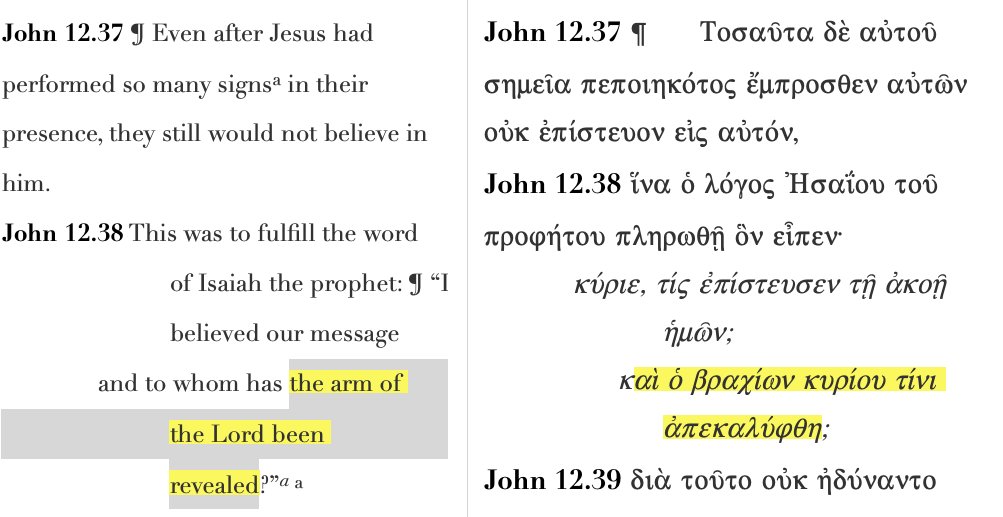
New Testament & BT prof @MBTS
Elder @emmauskc
Author https://t.co/ZjaffR28EL
find all Visual Word outlines here for free https://t.co/4ub7lGIc19
How to get URL link on X (Twitter) App


 1 / At the Transfiguration, a bright cloud overshadows Jesus and the disciples (Matt 17:5).
1 / At the Transfiguration, a bright cloud overshadows Jesus and the disciples (Matt 17:5).
 At creation
At creation 
 Tertullian stated that “we declare to renounce the devil, his pomps, and his angels” before entering the water (De corona, 3).
Tertullian stated that “we declare to renounce the devil, his pomps, and his angels” before entering the water (De corona, 3).

 But Matthew knew what he was doing. He is begging interpreters to look more carefully at his words and the Hebrew Bible. He indicates we need to go to multiple sources by the plural use of "prophets" (προφητῶν).
But Matthew knew what he was doing. He is begging interpreters to look more carefully at his words and the Hebrew Bible. He indicates we need to go to multiple sources by the plural use of "prophets" (προφητῶν).


 1. Authors should always be glad that someone has thoughtfully interacted with their work and move forward with humility and view it as a way to learn, challenge their thinking, or better communicate.
1. Authors should always be glad that someone has thoughtfully interacted with their work and move forward with humility and view it as a way to learn, challenge their thinking, or better communicate.
